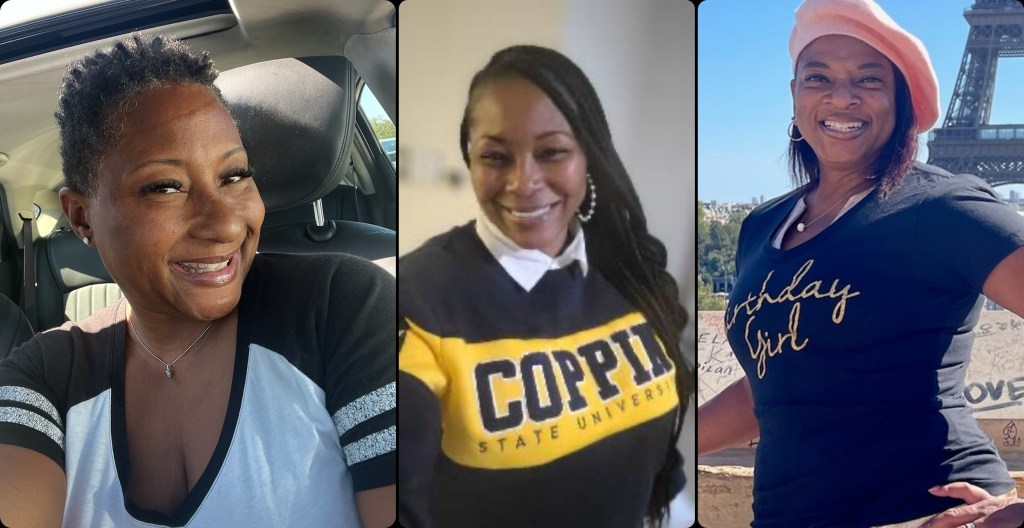

By Mylika Scatliffe,
AFRO Women’s Health Writer
As National Depression and Mental Health Screening Month continues, the topic of self-care often comes into view. After three years of a global pandemic and nearly a decade of tumultuous political and social climates, the 24-hour news cycle has taken its toll.
The number of Google searches for the term “self-care” has nearly quadrupled in the last five years, as reported by Google Trends.
What is self-care?
The National Institute for Mental Health defines self-care as “taking the time to do things that help you live well and improve both your physical and mental health.”
Cliché terms that come to mind when we hear “self-care” – spa days, girls’ trips, bottomless mimosas, yoga and Starbucks.
It’s more than that. Self-care looks different for everyone, but the basic principles remain constant.
“My biggest advice to anyone, but particularly women when it comes to self-care is to remember that it is not just doing indulgent things because they feel good in the moment,” said Brendel Plonka, a registered dietitian in Baltimore.
It is not uncommon for women in their 30s, 40s, and 50s to find themselves part of the “sandwich generation” – caretakers to their children and parents. This is in addition to working full time, maintaining spousal relationships and managing households. The responsibilities seem never-ending, and before they realize it women are at the bottom of their list of priorities.
“Luxuries and indulgences may have a place, but think about what you need—both physically and mentally. Scheduling and attending your annual checkup is self-care. Taking time to relax mentally and participate in your hobbies is self-care. Doing things to improve your health, like eating well and being physically active is self-care,” Plonka said.
Dr. Mokerrum Malik is an obstetrician and gynecologist at the University of Maryland Medical Center and an assistant professor at the University School of Medicine. Malik specializes in menopause. She shared with the AFRO how crucial it is for women to not allow their vitality to disappear as they age.
“I want to emphasize how important it is for women, particularly of menopausal age, to value their quality of life. You just don’t have to live with symptoms like hot flashes, night sweats, anxiety and depression, abnormal bleeding, insomnia, or the host of other symptoms menopause brings,” said Malik.
“Treatment exists, both medical and therapeutic, and you should seek it. Women deserve to feel comfortable and happy in their own bodies, and there are options to help them achieve it,” Malik continued.
Malik also stressed the importance of friendships and social interactions.
“It’s crucial to maintain a social circle of friends who can listen, empathize and offer advice. Making time for these social interactions is not a luxury or indulgence. Friendships help women cope with the stress, loneliness, and depression, particularly when it arises out of menopause,” said Malik.
Prioritize the times you spend with these friends – they provide a significant boost to your self-esteem, confidence, and happiness,” Malik continued.
While women are caring for others and giving their all at work, they might suddenly realize months or maybe years have passed, and they haven’t had their routine screenings and/or months have gone by with them suffering with symptoms of various ailments and conditions.
Every month of the year, there are dozens of national and international celebrations whose purpose is to raise awareness and support for worthwhile causes. In October there is ADHD, breast cancer, mental health and depression screening and anti-bullying just to name a few. Raising awareness and education for these issues means also normalizing self-care and self-love.

What does self-care and self-love look like?
The AFRO spoke with several women about what self-care looks like to them.
“I have an internal barometer and I check in with myself daily. Being at 75 percent is not good enough. If I’m not at least at 85 percent, I tap out,” said Kelly Woolford, 50, of Randallstown, Md.
As a mental health therapist, self-care to Woolford means primarily focusing on herself, and being aware of what she needs physically, mentally, spiritually and financially. She began thinking of self-care long ago. As a child, she watched her mother work around the clock to take care of her and her siblings.
“I often only saw her in passing; when she was coming in from work, I’d be going to school. I would come home from school, and she was going out to work again. The only time she would stop is when her body literally failed. She missed my middle and high school graduations because she was in the hospital. She had worked herself until her body just said no more. I decided I couldn’t live the same way,” said Woolford.
Woolford teaches a training course called Mental Health First Aid. “It’s all about self-awareness. As mental health clinicians we’re taking in other people’s stuff all day long. We’re human and not exempt from anything that anybody else is experiencing.”
That’s why Woolford’s daily check-ins with herself are crucial.
“I have to ensure I’m operating at an optimal level, because if I’m not I don’t want to pass my bad energy to anyone else. If I’m at 75 percent, that’s not good enough for me. That’s my signal to tap out and get myself back to 85 or 95 percent,” Woolford continued.
Some people think spa days and other pampering activities are frivolous and that self-care should focus on practical things like health screenings. Not Woolford.
“Mammograms and health screenings are basic, preventive measures. That’s what we should be doing. Loving and attending to yourself is going above and beyond. You have to dote on yourself because if you don’t love and care for yourself in the way that only you can, you haven’t set a standard and can’t expect it from anyone else,” said Woolford.

Kendra Thompson, 50 of Jacksonville, Fl. said she keeps her mental and emotional load balanced by reminding herself that she does not have to handle everything all by herself.
“I’m not a fixer anymore,” Thompson told the AFRO, adding that her motto for this year has been “Love me in 2023.”
Thompson has spent half her adult life taking care of other people. Her self-love journey began in 2015 when her father passed away. She was his caretaker for 26 years while simultaneously raising her daughter.
“In all that time I never really took care of me because I was so focused on my Dad and working and my daughter. After he passed away it was a telltale sign. I said to myself, ‘You know what, you have high blood pressure, you’re predisposed to it, and you need to get your life in order, lose some weight, and get off these blood pressure medicines,’” said Thompson.
Thompson lost some weight and started to get on track, but life intervened again when her marriage began to fail, and her brother and only sibling passed away unexpectedly from a heart attack in 2017.
“While cleaning out his stuff and making funeral arrangements, I found out my brother had been diagnosed with diabetes. I wasn’t taking care of myself, and things just started spiraling out of control. I was eating more than I should, drinking more than I should,” Thompson said.
When NFL football player Damar Hamlin experienced cardiac arrest in the middle of an NFL game earlier this year it triggered something in Thompson. She’d never gotten any kind of counseling. Not only had she lost her father and brother within two years of each other, but her mother died from pancreatic cancer when Thompson was 21 years old, four months after she gave birth to her own daughter. She sought grief counseling for the first time.
Thompson is a licensed massage therapist and realized she needed to live up to what she tells her clients.
“I started investing in me and practicing what I preach to my clients. I can’t make sure they are doing amazing and I’m falling apart at the seams,” Thompson said. “Women, especially African American women, do everything for everyone else and don’t focus on ourselves.”
Thompson now only has relationships that serve her, not just the other person. She meditates and has started journaling. She goes to the gym, gets regular massages and acupuncture, and makes a conscious effort to eat healthy.
“I’m 50. Life is short. Now I’m going to invest in me,” said Thompson.

Lyndell Scriber, 50 of Newark, Del. agrees that putting herself first is one way she maintains her health.
“I try not to carry the weight of others and I don’t let anything interfere with whatever I do to take care of myself,” she said.
Scriber has a very pragmatic approach to life. She has always been very physically fit and diligent about eating and exercise to stay healthy.
“I was diagnosed with high blood pressure at age 28, it runs in my family. My father had so many ailments – high blood pressure, diabetes, gout, congestive heart failure from a birth defect that wasn’t discovered until he was 40. So, with all that family history and having high blood pressure at such a young age, I knew I had to take care of myself,” said Scriber.
Scriber realized that she would blow all her stress out with high impact workouts. When she lost her best friend to brain cancer in 2012, she realized even more she had to take care of herself and not carry the weight of others. She left a stressful job and takes work life balance very seriously.
“I learned to say no. I learned to limit interactions with people who bring all their problems but can’t be there for me,” said Scriber.
“The first time I actually told my mother ‘no’ for something, I realized I could tell anyone,” Scriber said.
“After losing my best friend, I realized I have to live the life that I want and to take care of myself,” she said. “ Life is short, sometimes shorter than we realize.”
The post Black women speak on learning to make themselves a priority appeared first on AFRO American Newspapers .










